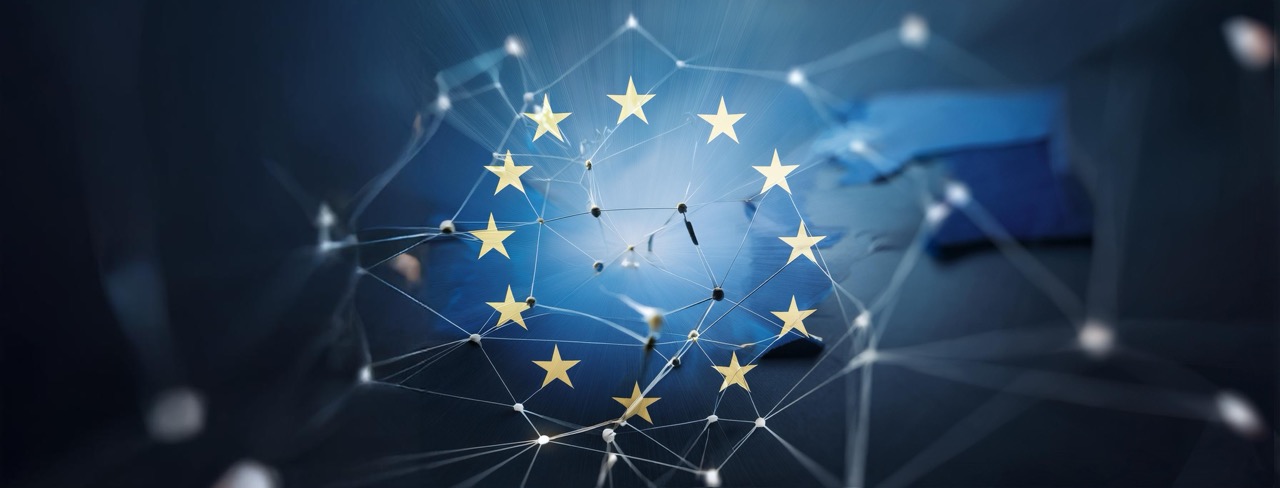EU AI Act: A Comprehensive Overview of the New Regulations
| By Eliana Pisons |
The EU AI Act: Continental Regulations with Global Implications
The European Union’s upcoming AI Act aims to establish global standards for the ethical development and deployment of artificial intelligence (AI). As the final text is expected in late 2024, leading technology companies such as Google, Meta, and Microsoft are grappling with the significant compliance challenges contained in the newly developed EU AI Act checker. First proposed in 2021, the Act classifies AI systems based on risk levels, ranging from “minimal” to “unacceptable,” and establishes strict guidelines for transparency, accountability, and fairness, particularly in high-stakes sectors such as healthcare and law enforcement. Many view this legislation as a potential benchmark for AI governance worldwide, underscoring compliance’s far-reaching implications for the technology industry and society at large.

Transparency vs. Complexity: The Explainability Challenge of AI
One of the most challenging aspects of compliance lies in the requirement for companies to clearly explain how their AI systems work, which is difficult for firms using complex models like neural networks. These “black box” systems make it hard to understand how decisions are made, posing a significant compliance hurdle. For example, many recommendation algorithms used by streaming services and social media platforms rely on intricate machine learning models that even their creators struggle to fully interpret. This lack of transparency can erode user trust and make it challenging to identify and rectify potential issues like discriminatory outcomes or privacy violations.

Navigating GDPR: AI’s Data Responsibility
The AI Act requires companies to align with GDPR’s data protection rules. Technology firms, which rely heavily on personal data, must ensure responsible data collection and use, a challenge highlighted by the AI Act checker. This includes obtaining proper consent for data usage, implementing robust security measures, and providing users with access to and control over their personal information. Failure to comply could result in hefty fines and reputational damage, as seen in previous cases where companies faced scrutiny for data breaches or misuse of user data.
Prioritizing Fairness: Confronting Bias with Ethical AI Development
AI systems can perpetuate bias, especially in sensitive areas like hiring. The Act mandates bias detection and mitigation, but technology companies are attempting to push back on this act. For instance, facial recognition technologies have been shown to perform poorly on individuals with darker skin tones, leading to false arrests and other serious consequences. Similarly, resume screening algorithms may inadvertently filter out qualified candidates based on proxies for protected characteristics like race or gender. While tech giants argue that overly strict regulations could stifle innovation, advocates maintain that addressing bias is crucial for creating a fairer society and avoiding harm to marginalized groups.

The Accountability Challenge: Implementing Human Oversight in Complex AI Ecosystems
The Act emphasizes human oversight and accountability for AI deployments. The major technology firms’ complex management structures make it difficult to implement clear lines of responsibility, raising concerns about liability in the event of failures. The intricate web of teams, departments, and decision-making processes within these companies makes it difficult to pinpoint exactly where responsibility lies in the event of AI system failures or unintended consequences. This lack of clarity raises serious concerns about legal liability and the potential for regulatory penalties. Companies must navigate these internal complexities while striving to meet the Act’s requirements for human oversight and accountability.
The AI Industry’s Response: Balancing Self-Regulation and External Oversight
To address these challenges, many leading tech firms are making significant investments in building robust ethics teams, developing transparency tools, and implementing comprehensive auditing systems. However, critics argue that self-regulation may not be enough, given past lapses in compliance with laws like the GDPR, as evidence that companies may struggle to consistently adhere to strict regulatory frameworks without external oversight. This debate highlights the ongoing tension between industry self-governance and the need for rigorous external regulation in the rapidly evolving field of AI.

Beyond Borders: The International Implications of the EU AI Act
The AI Act is expected to influence AI regulations worldwide, much like the GDPR did for data protection, and how the EU’s USB-C requirement compelled Apple to globally adopt the industry-standard charging port in its iPhones and iPads. As industry giants operate globally, compliance with the EU’s stringent standards could become the norm for AI development worldwide. This trend toward harmonization of AI regulations could lead to a more uniform set of practices across different jurisdictions, potentially simplifying compliance for companies operating on a global scale. At the same time, it may present challenges for nations seeking to craft their own distinct approaches to AI governance. The widespread adoption of EU standards could also influence the trajectory of AI innovation, shaping the types of applications and use cases that receive investment and development resources.
A Crossroads for AI: Integrating Ethical Regulation with Technological Progress
The EU AI Act sets a new benchmark in the regulatory landscape for ethical AI development and fielding. Industry leaders will need to make significant adjustments to their existing practices and invest heavily in new systems, processes, and personnel to ensure compliance with the AI Act’s stringent requirements. The ability of these influential firms to successfully adapt to this new regulatory environment will undoubtedly shape the trajectory of AI governance on a global scale. Their responses may serve as models for other jurisdictions crafting their own AI policies, potentially leading to a broader harmonization of standards worldwide. Ultimately, the success or failure of AI companies in meeting the EU’s demands could determine the future course of AI innovation, influencing everything from the types of applications developed to the societal impacts of this transformative technology. As the world watches, the coming years will reveal whether the AI Act serves as a catalyst for a more ethical and beneficial AI ecosystem or presents insurmountable challenges for the industry’s continued growth and advancement.

The illustrations in this article were created using an AI image generator. All illustrations are ©Intelliwings.



